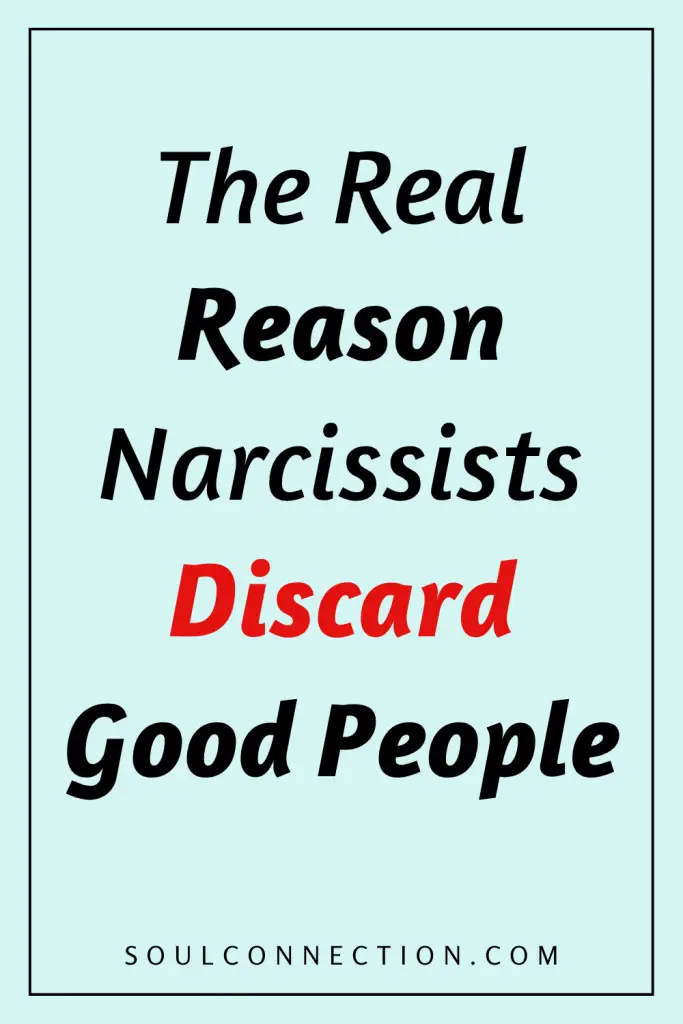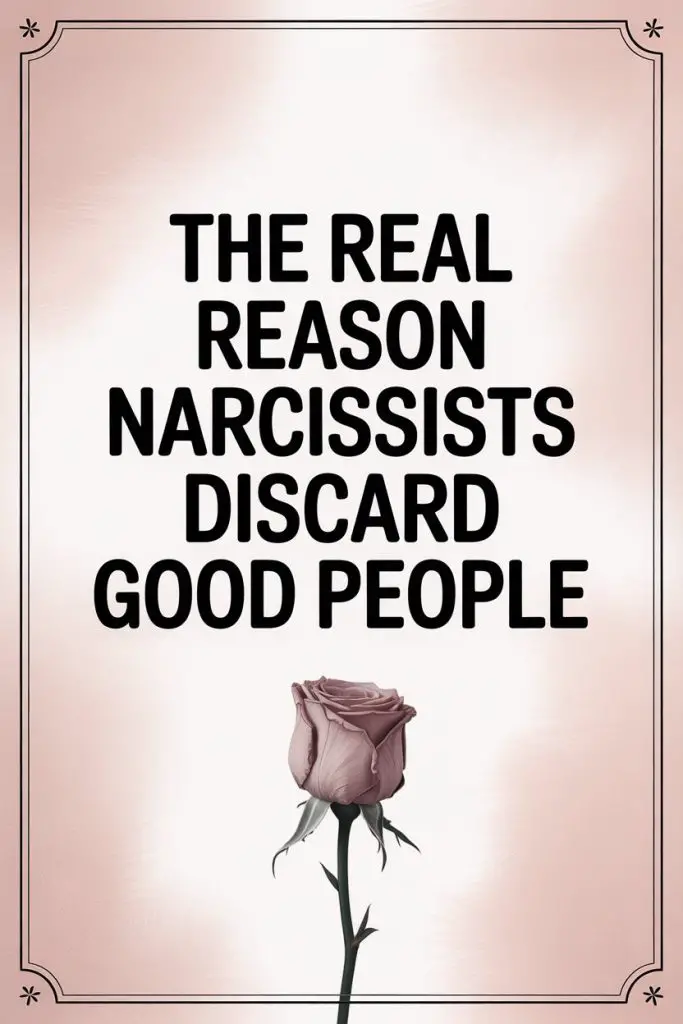Ever been left spinning by a narcissist’s sudden exit? One moment, you’re the center of their universe; the next, you feel like you’ve been thrown out with yesterday’s leftovers.
If you find yourself replaying conversations and wondering how things went sideways when you did everything right, you’re not alone.
It’s not you. It’s the way narcissism operates—predictable as rain in April, yet somehow always shocking when it pours. The real reason narcissists discard good people isn’t about your worth or shortcomings.
It’s about the strange, self-defeating dance they perform around their own fears and needs. Grab a cuppa, because this is about to get real.
The Need for Superiority
Narcissists live in a world where they must feel superior—always. A genuinely kind, loyal, or competent partner is both a prize and a threat.
When you shine too brightly, they feel overshadowed. This isn’t conscious, by the way; it’s more like their ego sets off an alarm.
At first, the narcissist loves what makes you special. Soon enough, your strengths start to feel like competition. If you’re too independent, too well-liked, or too successful, they’ll begin to chip away at your confidence.
If that doesn’t work, and you still stand tall, well—time to find someone a bit less dazzling.
Idealization Can’t Last
The classic narcissist move starts with love-bombing—gifts, grand gestures, future plans that sound suspiciously like a Netflix original. But idealization is exhausting to maintain.
Inevitably, reality creeps in. You have flaws. You have opinions. You don’t always agree.
For someone who craves fantasy over reality, the shine coming off is unacceptable. They don’t want to deal with the messy, glorious humanness of a real relationship.
So, the good partner who starts to ask for reciprocity or healthy boundaries becomes a disappointment. A discard is underway.
Supply and Demand
Ever notice how narcissists seem to have a revolving door of friends, lovers, or confidantes? That’s because they chase what’s known as “narcissistic supply”—admiration, attention, reactions, even conflict.
Good people, with their pesky desire for mutual respect and predictable affection, aren’t always the most thrilling source of supply once the novelty wears off.
If someone new is offering bigger ego strokes or easier compliance, the narcissist will chase that shiny new thing. This isn’t about love, loyalty, or morals—it’s about keeping their supply chain running.
Fear of Exposure
There’s a secret beneath the bravado: narcissists are terrified you’ll see the person behind the mask. In the early days, you’re distracted by the whirlwind romance.
Over time, their behavior gets harder to hide. You start asking questions. Maybe you notice inconsistencies, or you see the cracks in their stories.
A good partner wants emotional intimacy. A narcissist wants to control the narrative.
Once you start to see their true colors, the discard can feel sudden, but it’s usually been brewing. They’d rather leave you confused than risk you exposing them—or, worse, asking them to change.
Control Is Everything
If you’ve ever tried to set a boundary with a narcissist, you’ll know how much they hate it. Good people are, frustratingly for them, likely to ask for respect, honesty, and compromise.
To a narcissist, every boundary feels like an attack on their power.
When a relationship starts to shift from their control to something more balanced, they panic. Rather than compromise, they’ll regain control their favorite way: by leaving before you have the chance to challenge them further.
It’s the relationship equivalent of flipping the Monopoly board when they’re losing.
Self-Sabotage on Repeat
Here’s the kicker: narcissists sabotage good relationships even when they secretly crave them. Healthy love feels foreign. Deep down, many narcissists believe they’re unworthy of genuine care.
Receiving steady affection can make them uncomfortable—like wearing shoes on the wrong feet.
As soon as things get too real or too close, they unconsciously (or sometimes consciously) look for reasons to blow it all up. It’s safer to leave a good thing than risk being vulnerable or getting hurt themselves.
The Thrill of the Chase
Narcissists love the early stages: the flirty texts, the big gestures, the drama. Once things settle into routine, they get bored.
Good people tend to want stability and depth—a lovely, calm cup of tea, not a triple espresso with whipped cream and fireworks.
The narcissist, addicted to intensity, starts seeking new sources of excitement. If you’re offering steady love, you might be swapped for someone who brings more chaos or drama. It’s not logical, but it is common.
Disconnection from Empathy
A narcissist’s empathy switch flickers at best. When they discard you, it isn’t because you’ve failed them; it’s because their empathy just can’t compete with their self-interest.
They don’t lie awake at night worrying about your heartbreak.
Good people are often drawn to narcissists because they believe empathy can heal. Spoiler alert: you can’t out-nice someone’s personality disorder.
No matter how much you love or support them, they’re wired to put themselves first.
Blame Shifting and Gaslighting
Ever been dumped and then told it was all your fault? Classic narcissist move. They’ll often orchestrate the discard to make sure you’re left questioning your own actions, sanity, or value.
This blame game isn’t about truth; it’s about avoiding responsibility and keeping their self-image squeaky clean. Good people, with their reflective natures, are especially vulnerable to taking on this undeserved guilt.
Time to Reclaim Your Power
If you’re reading this after a narcissist’s discard, it’s easy to feel blindsided or diminished. But here’s the truth: being “too good” was never the problem.
Narcissists discard good people because your light exposes their shadows.
They choose easy exits over difficult growth. You’re left with an opportunity—to learn, to heal, and to choose yourself. You’re not too much, too emotional, too demanding, or too anything.
You were just too real for someone who can’t handle reality.
Tonight, instead of replaying their words, try this: Ground yourself in your own worth.
Reconnect with friends who make you laugh. Write down the ways you showed up for the relationship (and for yourself). Refuse to shrink to fit someone else’s comfort zone.
You’re not alone, and you’re certainly not to blame. Sometimes, the discard is the universe sparing you from a lifetime of emotional charades.
Chin up—your sparkle’s just fine, exactly as it is.


